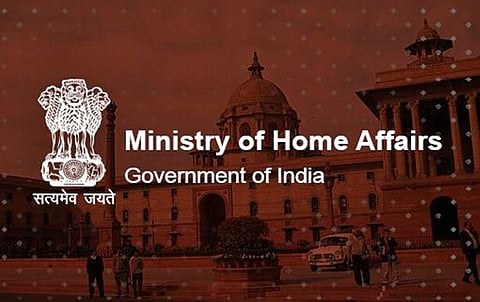

The Union Government warns against unimaginable consequences for national security if disclosure is allowed.
—-
THE Union Ministry of Information and Broadcasting ('MoI&B') has informed the Supreme Court that the Union Ministry of Home Affairs ('MHA') is claiming privilege over the contents of the files concerning the denial of security clearance to Malayalam news channel MediaOne TV, as the same contains intelligence inputs which are sensitive and secret in nature. The MHA seeks to rely upon Section 124 of the Evidence Act, which states that no public officer shall be compelled to disclose communications made to him in official confidence when he considers that the public interests would suffer by the disclosure.
The MoI&B's affidavit states that disclosure of the file to the petitioners would have far-reaching and unimaginable consequences for national security. The Ministry is, however, willing to share the files with the Supreme Court in a sealed cover.
It states that in cases like the present, where a matter concerning national security is involved, the channel cannot insist upon the strict compliance of principles of natural justice, and the government is not bound to disclose reasons for denial of security clearance to the petitioner company.
The Ministry's affidavit states that permission granted on August 26, 2015, to the petitioner company for uplinking and downlinking of its TV channel, namely, Media One Life, was cancelled on September 11, 2019 in view of the denial of security clearance by the MHA. It adds that the denial of permission to the petitioner company for appointment of two new directors was communicated to it on August 11, 2017.
"The said cancellation of permission granted for uplinking and downlinking of TV channel and denial of permission for appointment of directors in the company has not been challenged by petitioner company and such as the proceedings became final", the affidavit states.
It asserts that the contention of the petitioner company that security clearance of MHA is required only at the time of initial permission, and in case of renewal, no such permission is required, is fallacious and contrary to provisions of uplinking and downlinking guidelines.
"The clause 9.4 of uplinking guidelines and clause 10.2 of downlinking guidelines specifically provide that all the conditions/requirements required at the time of grant of initial permission are required to be complied with at the time of renewal also. Further, if the interpretation as is sought to be given by Petitioner is accepted, it would lead to a situation wherein clearance granted by MHA for once will operate perpetually which would defat the very purpose and object of grant of such security clearance", the affidavit reads.
The renewal of permission for a TV channel is not a matter of right for a company and such permission is granted only upon fulfilment of certain eligibility conditions, the government asserts.
On March 15, the Supreme Court, while issuing notice to the union government, had stayed the order passed by the government on January 31 this year revoking the channel's security clearance until further orders. A division bench of Justices D.Y. Chandrachud, Surya Kant and Vikram Nath had passed the order to this effect after perusing the confidential files on the basis of which clearance was denied to the channel. The bench was, after going through the files, of the opinion that a case for interim relief was made out in favour of the channel. The files were perused by the three judges to the exclusion of the petitioner with the consent of the latter.
On March 2, a division bench of the Kerala High Court held that it was satisfied after going through the contents of the confidential files produced before it in a sealed cover, that a single judge bench of the same court was right in declining to interfere with the order passed by the union government refusing renewal of uplinking and downlinking permission to M/s. Madhyamam Broadcasting Limited for telecast operations through 'Media One TV'. However, at the same time, the division bench also observed from the files that the nature, impact, gravity and depth of the issue was not discernible. Yet, it went on to uphold the ban, citing the confidential and sensitive nature of the files maintained by the MHA. It said it would not express anything further in the interest of national security, public order and other aspects concerning the administration of the nation.
On May 3 last year, the petitioner had submitted an application seeking renewal of permission of the TV Channel licence for a further period of ten years. The application was forwarded to the MHA by the MoI&B on November 29. However, on December 29, the MHA denied security clearance to the company relating to the proposal, that is, the renewal of uplinking and downlinking permission for a further period of ten years with respect to 'MediaOne'.
Following this, the MoI&B issued a show-cause notice on January 1 to the petitioner asking as to why permission seeking renewal should not be denied. In response, the petitioner on January 19 stated that it was unaware of the grounds of denial of renewal of security clearance since the same was not communicated to it, and that it was never granted an opportunity of being heard while denying the clearance.
Eventually, the proceedings arising from the show-cause notice resulted in the order passed by the MoI&B on January 31 revoking the permission granted to the petitioner company to uplink and downlink its news and current affairs TV Channel.
The company argued before the high court that it had never been given reasons as to how it violated national security, and was therefore denied clearance, in violation of the principles of natural justice. Besides, it was contended by the petitioner that the action of the government violated press freedom.